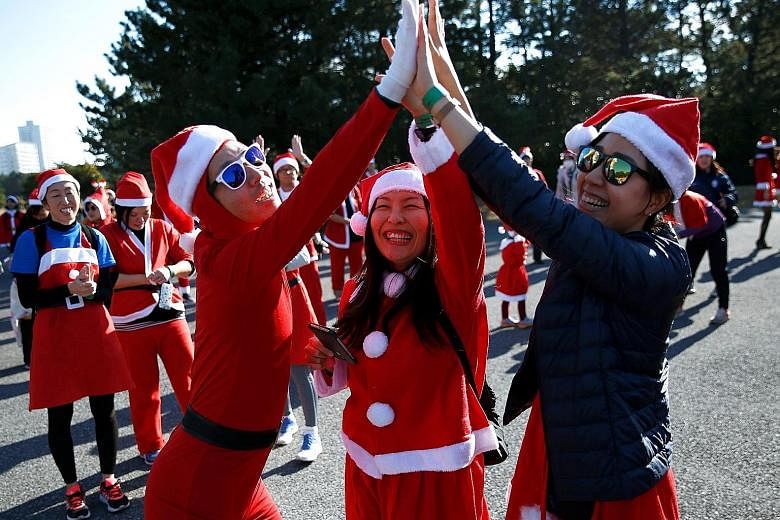NEW YORK • When relatives and guests make an appearance over festive seasons, do not force your daughters to hug them. That is the advice from the Girl Scouts of the USA.
"Have you ever insisted - 'Uncle just got here - go give him a big hug' or 'Auntie gave you that nice toy, go give her a kiss' - when you were worried your child might not offer affection on her own?" it said in a recent post that drew considerable reaction and, in some cases, backlash.
"If yes, you might want to reconsider," the organisation said.
"Think of it this way, telling your child that she owes someone a hug either just because she hasn't seen this person in a while or because they gave her a gift can set the stage for her questioning whether she 'owes' another person any type of physical affection when they've bought her dinner or done something else seemingly nice for her later in life."
On the Girl Scouts' Facebook page, the post generated hundreds of comments. "No girl is going to seriously think she has to get physical with a guy to be polite, just because she had to give Aunt Betty a hug at Christmas when she was little," said one person.
But another wrote: "If an adult is seriously offended by a child not feeling comfortable with a hug, they need to grow up. Of course, we all want our kids to be loving and kind. But doing something that doesn't feel right to them just because an adult wants you to is wrong."
The Girl Scouts emphasised that there are ways other than physical contact to show gratitude and love.
"Saying how much she's missed someone or giving thanks with a smile, a high five or even an air kiss are all ways she can express herself, and it's important that she knows she gets to choose which feels most comfortable to her," it said.
The post was widely shared on social media, where some readers wondered how the conversation would play out across a diverse culture, since some ethnic groups are more emotionally demonstrative.
The Girl Scouts said: "Obviously, our advice will not apply in all situations, and we recognise that parents and caregivers are in the best position to judge which conversations they should have with their girls."
Dr Andrea Bastiani Archibald, its developmental psychologist, said it is never too early to start the conversation about consent with girls.
"The lessons girls learn when they're young about setting physical boundaries and expecting them to be respected last a lifetime and can influence how she feels about herself and her body as she gets older," she noted.
"Plus, sadly, we know that some adults prey on children and teaching your daughter about consent early on can help her understand her rights, know when lines are being crossed, and when to go to you for help," she added.
But Professor Sharon Lamb, of the counselling and school psychology department at the University of Massachusetts in Boston, said the Girl Scouts' advice might be expecting too much of young children.
"There is a little bit of pushing kids to take care of themselves and set their own boundaries," she noted.
She said that having a general no-hugs policy could remove an opportunity for parents to find out whether there are deeper meanings to a child's hesitation.
"Coming up with a rule should not take the place of figuring out what's up with your child, and whether that child is just shy and doesn't like hugs, or whether they don't like this relative, or something else is going on," Prof Lamb said.
NYTIMES

